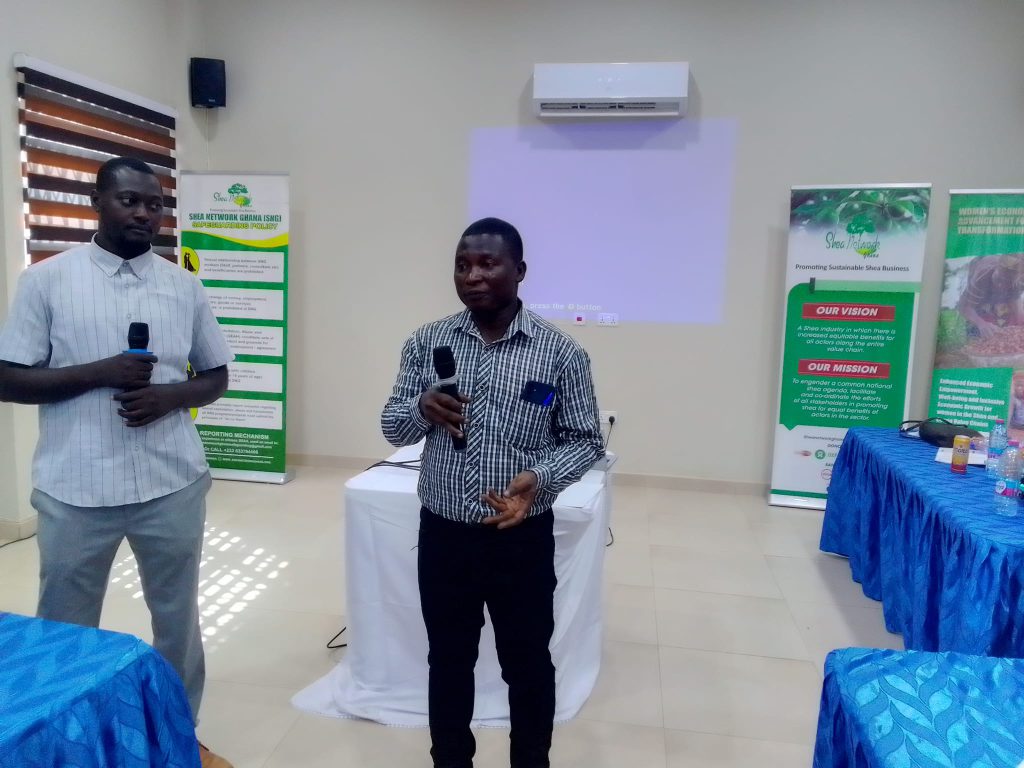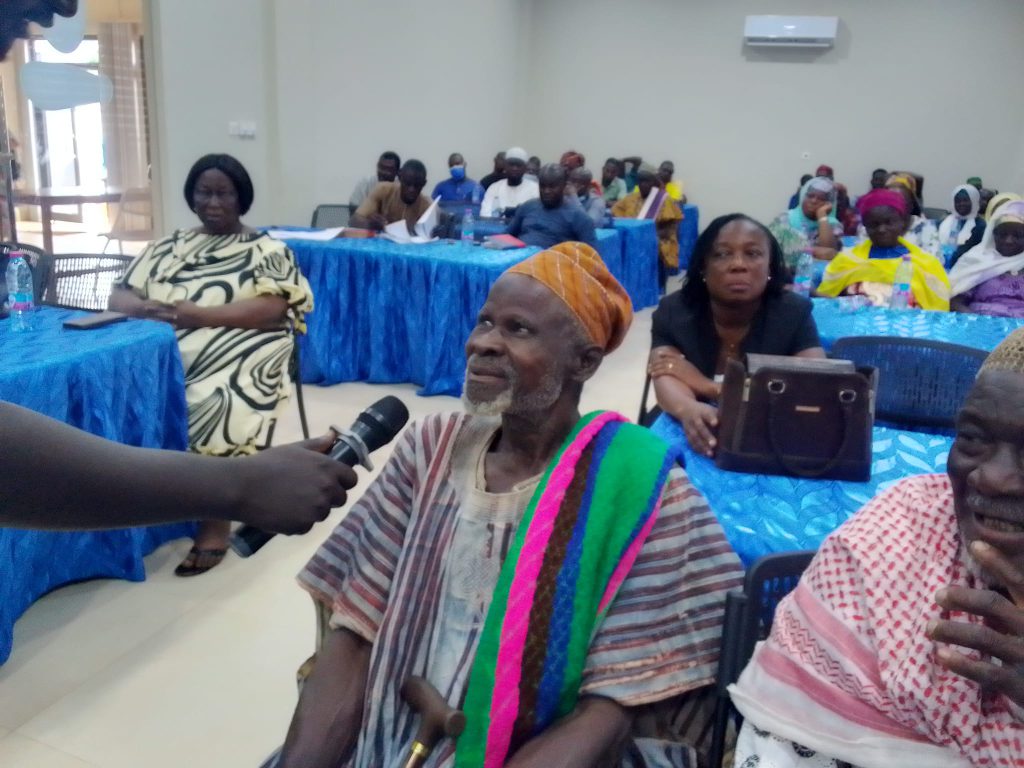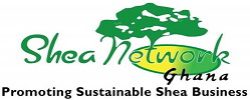
On Friday, November 29, 2024, Shea Network-Ghana SNG, in collaboration with its partners Women in Law and Development in Africa (WiLDAF Ghana), Norsaac, Tungteiya Women’s Association, SEND Ghana, Friends of the Nation (FoN Ghana), Viamo, and OXFAM in Ghana, launched a policy brief titled “Enhancing Women’s Property Rights in Shea and Cocoa-Producing Communities.”
The event, which was held during a stakeholder engagement meeting, brought together representatives from key institutions, including the Department of Gender, Social Welfare, Agriculture, Domestic Violence and Victims Support Unit (DOVVSU), Legal Aid, Women in Agricultural Development (WIAD), and the National Commission for Civic Education (NCCE). Chiefs from various communities where the WEACT Project is being implemented, as well as religious and women leaders, were also in attendance.
The policy brief addresses the critical issue of women’s access to property, particularly land, as a determinant of economic security, social status, and power. In many Shea and Cocoa-producing communities, women face significant barriers in securing their property rights due to legal inequalities, customary practices, and socio-cultural norms. These challenges hinder their ability to achieve economic independence, sustain livelihoods, and contribute to broader development.
Speaking at the launch, the Coordinanor of Shea Network-Ghana, James Kpenyog Dakora, emphasized the importance of addressing these systemic barriers. “Women’s access to property, including land, is crucial for empowering them economically and socially. Unfortunately, the existing inequalities severely limit their potential to thrive and contribute to their communities,” he stated.
The policy brief is the outcome of a rapid assessment conducted in Shea and Cocoa-growing communities as part of the Women’s Economic Advancement for Collective Transformation (WEACT) Project. The five-year project, funded by Global Affairs Canada (GAC) and supervised by OXFAM in Ghana, aims to promote women’s economic empowerment and tackle the structural issues that limit their rights.
Key findings from the assessment highlighted the need for legal reforms, enhanced policy implementation, and community-level education to challenge discriminatory practices. The document also provides actionable recommendations for improving women’s property rights and fostering inclusive economic development.
Commenting at the meeting, a sub-chief from Diare (Diare Zagyuri-Naa), commended the initiative, stating that it paves the way for greater awareness and collaboration to address those long-standing issues. “As traditional leaders, we have a role to play in ensuring women are given equal opportunities to own property and participate in economic activities. This policy brief will guide us in making informed decisions,” he said.
The WEACT Project Manager at the WiLDAF, Gabriel Awoody, on his part, called on stakeholders, including government agencies, traditional authorities, civil society organizations, and development partners, to work together in implementing the recommendations outlined in the policy brief.
“The WEACT Project continues to serve as a transformative initiative, seeking to enhance women’s economic advancement in Shea and Cocoa-producing communities, and the launch of this policy brief marks another step forward in addressing gender inequalities and fostering sustainable development” he said.

Written by Adam Abdul-Fatawu Wunizoya/Communications and Member Services Coordinator
